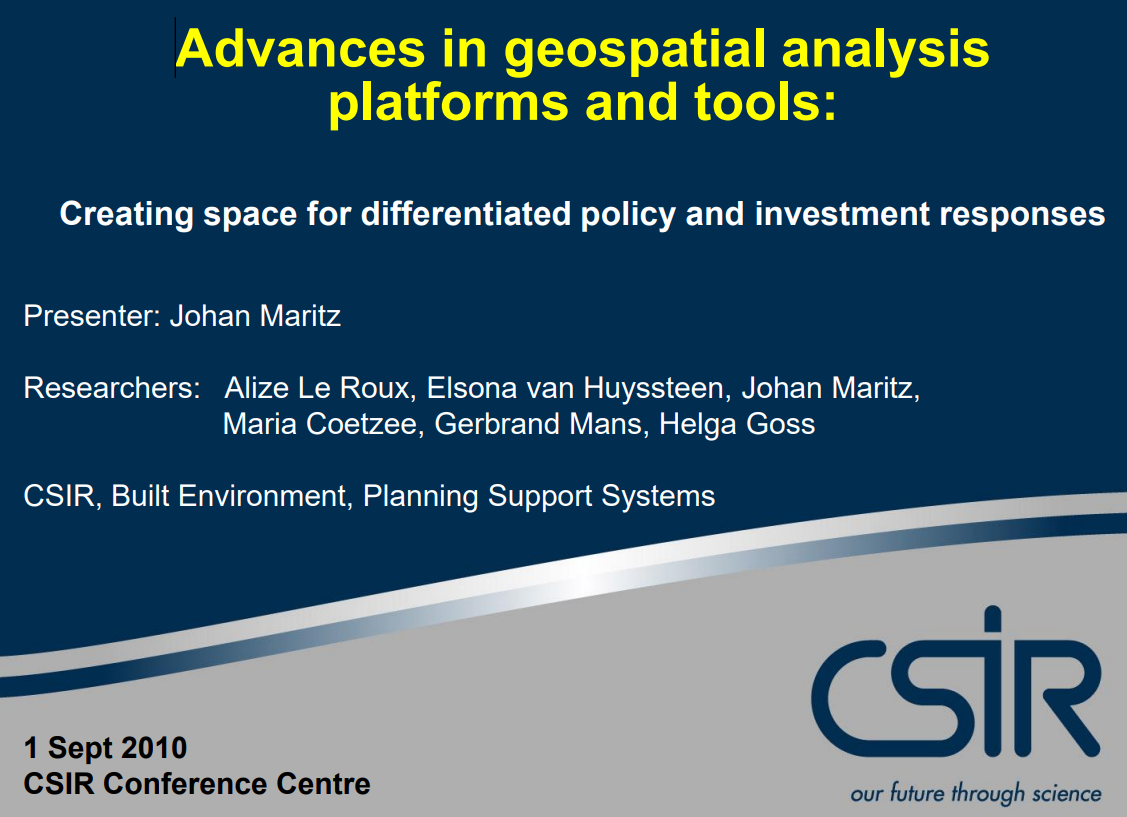Advances in geospatial analysis platforms and tools
Creating space for differentiated policy and investment responses

Over the last 5 years a set of incremental advances within geospatial analysis platforms and tools developed by the CSIR's Planning Support Systems in collaboration with key stakeholders such as The Presidency, enabled a more nuanced regional level spatial analysis, well as the identification and comparison of a range of settlement types in South Africa in terms of key characteristics and functional roles. Amongst others the analysis have enabled the identification of critical areas that can be targeted in planning and policy development, and a new "reading" of the South African space economy. The latter for example highlighting the importance of the policy centric network of densely settled clusters, local towns and service centres, regional service centres, cities and bigger city-region areas, and challenging traditional perceptions regarding the role, character and challenges of particular spaces, for example that of "urban" versus "rural".
The paper is aimed at reflecting on a series of recent advances in spatial analysis and how these contributed towards an enhanced understanding of complex dynamics of social and economic spatial patterns within South Africa, informing key policy and planning process in support of development objectives. The paper will firstly provide a brief overview of these recent advances and innovations in spatial analysis tools and platforms by the CSIR, and position that in context with international challenges to improve spatial analysis and decision support systems. Secondly, the paper will illustrate the recent applications and the value of these advances within the South African context, not only in generating a more nuanced understanding of the space economy, but also in enabling commensurate and context specific investment and policy responses and in contributing to development, urban management and service delivery discourses

Comments